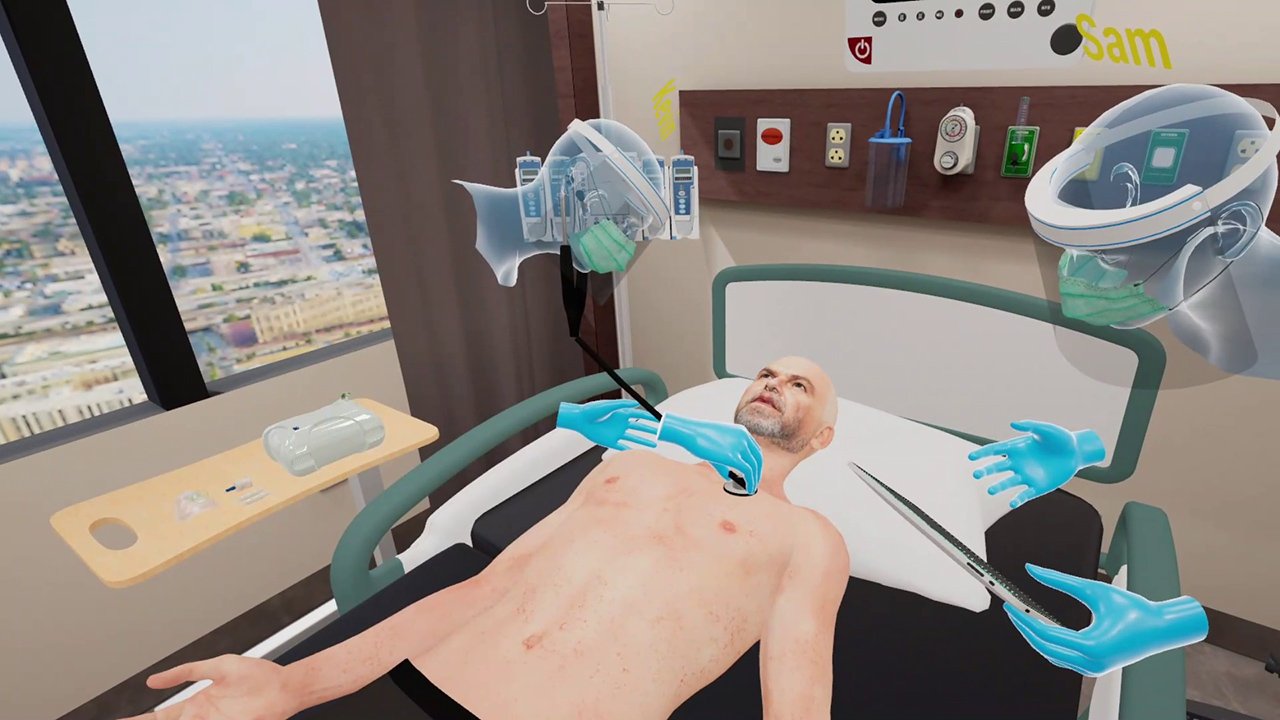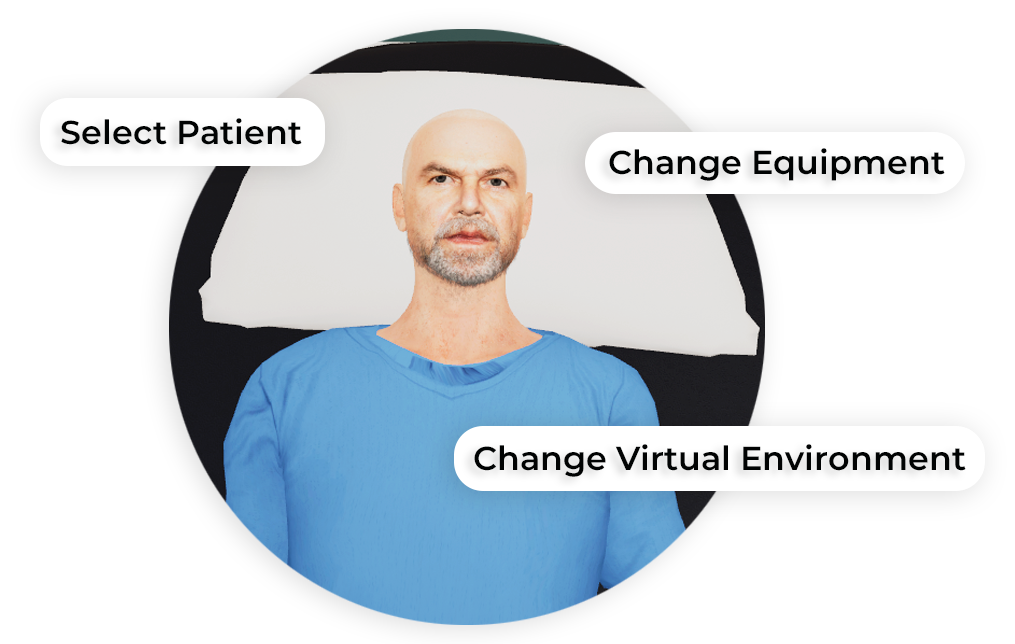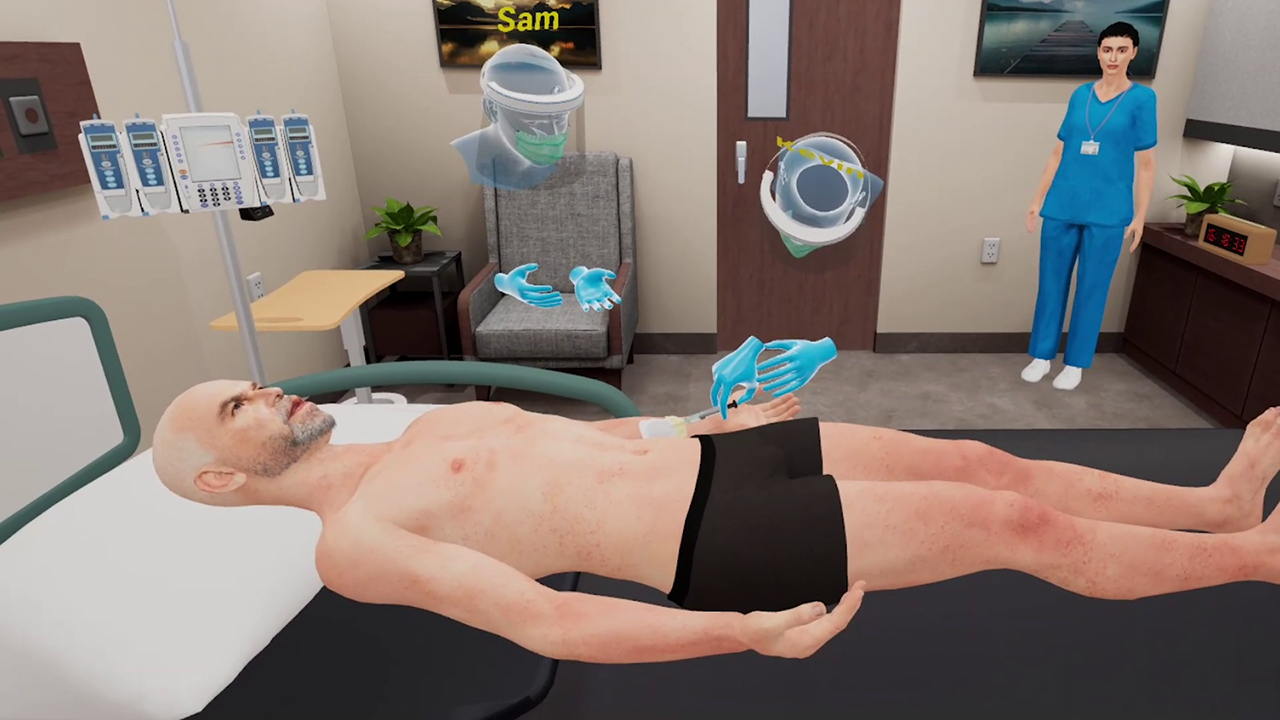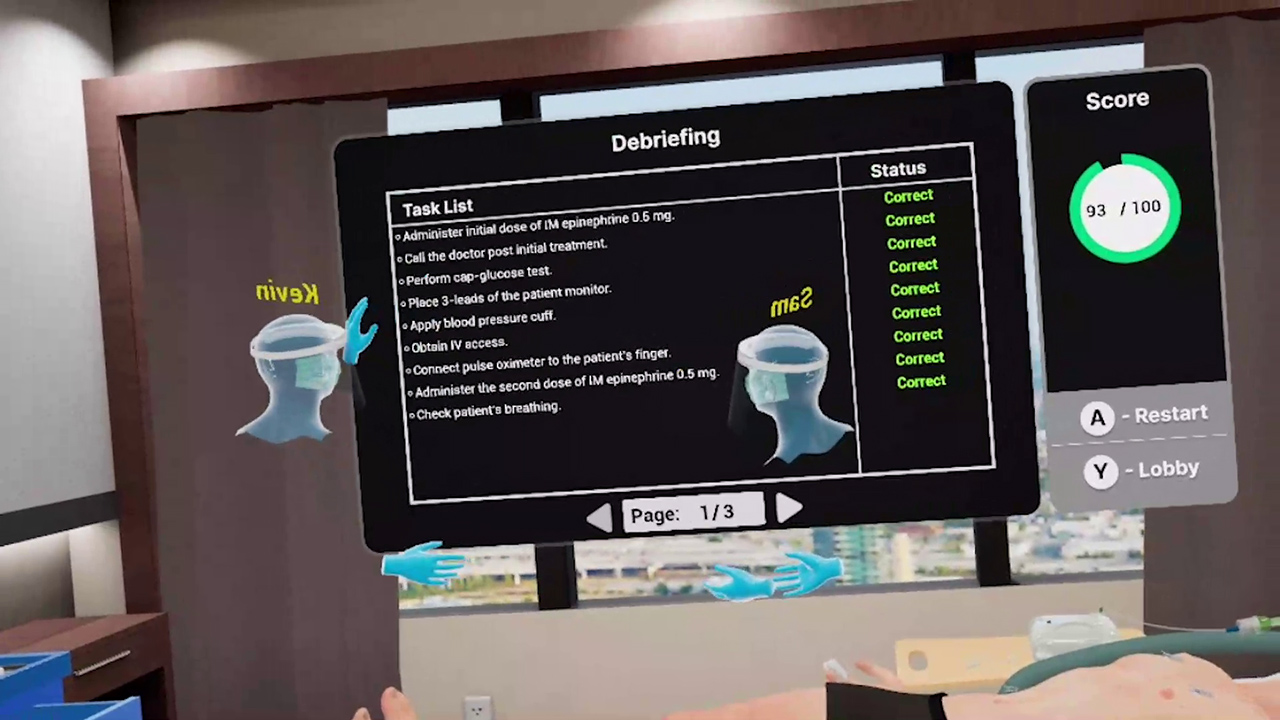Anaphylaxis
As a healthcare practitioner, you have been called to assess a patient, 65-year-old Kevin Shaw, who has developed a rash and nausea shortly after starting an IV dose of tazocin. On handover you were told that Kevin was admitted this morning for treatment of a diabetic foot infection that has been progressing despite oral antibiotics.
This multiplayer VR session is designed to expose learners to a case of severe anaphylaxis and involves the identification and initial management of the symptoms.
- Recognize clinical signs or symptoms of the patient in anaphylaxis
- Demonstrate appropriate initial management of anaphylaxis
- Appropriately ask for help and communicate concerns to the attending physician

- “Anaphylaxis” by Sampson HA, Muñoz-Furlong A, Campbell RL, et al., Journal of Allergy and Clinical Immunology, 2006, 117(2), S470-S475.
- “Anaphylaxis in Adults: Clinical Features, Diagnosis, and Management” by Simons FER, Ardusso LRF, Bilò MB, et al., Journal of Allergy and Clinical Immunology: In Practice, 2019, 7(2), 476-485.e1.
Customize Your Program
Get rid of the editor. Adopt in-VR customization.
MedVR Education is bringing to you in-VR customization that will enable you to put together your own simulations by making selections from a wide range of feature choices.
- Select patient from a diverse background
- Choose preferred virtual environment
- Configure patient vitals
- Define simulation duration
- Create patient history and train with AI-Humans
- Customize session-end debriefing
- …..many more to come

 AI Patient Assessment
AI Patient Assessment Natural Language Processing
Natural Language Processing Multi-player
Multi-player
Sessions Physics-Based Interaction
Physics-Based Interaction
Core Skills Training

Anaphylaxis on the Ward
As part of this open scenario, the learner is expected to perform a glucose test, place the patient on oxygen and stop the antibiotic infusion. After performing an assessment and finding the condition of the patient to be worsening, the learner is required to administer epinephrine infusion. Having administering additional medication, the learner will call and update the admitting doctor. All necessary affordances are made available to learners to help them complete the process with efficiency.
Debriefing
End-of-task debriefing to assess one’s performance, evaluate actions, and get the most out of the training. Examples of topics being touched upon in the debriefing include the following:
- Thorough patient assessment
- Completion of necessary steps
- Correct medication administration to patient
- Sequential completion of task
- Execution of time-sensitive tasks






